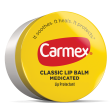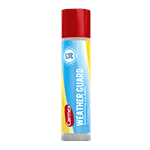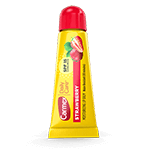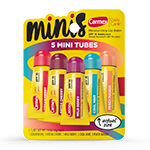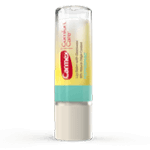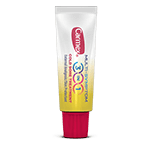Problems That Can Occur

Chapping
The most common lip problem that occurs is chapping, which is the breakdown or cracking of the keratin surface layer. The most common reasons for chapping of lips are frequent licking of the lips, dryness, and damage from the sun. Specifically, damage is caused by exposure to certain ultraviolet rays from the sun.
Dry, chapped lips can occur in dry environments. However, it can also occur in a cold climate with artificial heat, with mouth breathing (for all kinds of reasons), and insufficient fluid intake, or excessive fluid loss.
Another common cause of dryness is frequent licking of the lips, which removes the natural protective oils within the lip tissue and in turn allows the natural moisture of the lips to evaporate. This moisture loss results in drying and cracking of the lip’s surface.
Exposure to ultraviolet rays of the sun is another reason that lips chap. The sun’s ultraviolet rays damage the keratin producing cells that create the protective outer layer of the lip. Lips can sunburn and peel just like regular skin. Also just like regular skin, once the cells are damaged, they break apart and fall off. When the lips lose these cells, they become chapped. The chapping will continue until all the damaged cells fall off, and new cells take their place. But, it is important to realize that even the new cells are slightly damaged so sun damage to skin cells is permanent and adds up over time.
Now and then, in some people, natural products that come in contact with the lip’s surface when eating, such as oil from lemon skins or acid from vinegar, can also cause damage or inflammation. Once the lip’s surface is damaged, no matter why it has occurred, the flexibility of the lips is also decreased because moisture is lost. This loss of flexibility will make the lips crack more, because they cannot stretch without breaking.
Physical Trauma
Physical trauma to lips can arise from impact with a hard object. Physical trauma often occurs while playing sports and usually results in swelling or a break in the lip’s surface skin. If the lip tissue is kept moist and flexible, the trauma will usually heal in about one week. Sometimes, physical trauma to the lips can be caused by using a lip product that is too hard and damages the lip when applied.
This is especially true if the lip tissue is already partly damaged and the flexibility of the tissue has been decreased. Trying to apply lip balm that is too hard can tear and crack the lips further.
Allergy
Another problem that can cause lip damage is an allergic reaction to something that touches the surface of the lips. This is called a contact allergy. Some things, like poison ivy, commonly cause allergic reactions. Less commonly, allergic reactions can also be caused by various substances in foods, dental products and cosmetics. Allergic reactions to chemical compounds used in different types of skin products, and even in some types of lip balm, are possible.
Allergic reactions may appear as blisters, redness, or cracking of the lip’s surface. If a person has an allergy to a specific ingredient, then they likely should not use that ingredient on their lips.
If you seem to react to a lot of different products, you may be allergic to a common ingredient that is found in many lip balms or cosmetic products. If you are not able to find a product that you are not allergic to then you should consult with a dermatologist or allergist who can test you for common contact allergies.
Infections
Lips can sometimes become infected. Infections can be caused by a virus, a fungus, or, very infrequently, bacteria.
Herpes Simplex (Viral Infection)
The most common infection that occurs on lips is a viral infection, usually due to the herpes simplex virus. The sore from a herpes simplex infection is commonly called a cold sore or fever blister. Studies document that seventy to ninety percent of the U.S. population has been exposed to the herpes simplex virus, usually in childhood.
After the first infection, the virus lives in the nerves where it first entered the body. This is why cold sores always seem to come back in the same location.
Recurrent herpes lip sores are most commonly triggered by sunlight (ultraviolet radiation) exposure, but can also be caused by trauma and other factors, such as stress or diet.
No matter what starts a recurrent herpes attack, or outbreak, people often first notice a tingling sensation on the face or lip. The lip will then turn red and blister, and pain will occur. The blisters break, leaving a crusted sore that usually lasts about five to seven days. It is important to protect the crusting sore or scab to help the healing process. Soft lip balms with ingredients like petrolatum can help keep the sore protected.
Some people get a recurrent herpes lip sore once every few years, while others may get them much more frequently. If you get frequent herpes outbreaks, you can see your dentist or physician. They can prescribe a medication that may prevent or shorten the attacks and decrease the duration of the pain.
Angular Cheilitis (Fungal Infection)
The second most common infection of the lip is a fungal or yeast infection. A fungal infection most commonly appears as cracking in the corners of the mouth, and is referred to as angular cheilitis. (Angular from the Latin angulus, meaning corner. Cheilitis, from the Greek cheilos, meaning lip.) Yeast organisms prefer to grow in moist environments, and too much moisture at the corners of the mouth can allow the area to become and remain infected. Some possible causes of angular cheilitis are drooling at night and frequent licking of lips, which can keep the area too moist.
Cancer
Cancer occurs, rarely, on the lip (most often the lower lip). The most common cancer is called squamous cell carcinoma and is thought to be caused by damage from ultraviolet rays of the sun and other risks, like tobacco use. Before a cancer develops, the tissue on the lip, which is normally pink to red, will usually become thicker, firmer, and whiter. Bleeding and an open sore that will not heal are the most common features of lip cancer.
The best ways to prevent lip cancer from developing are to avoid the use of tobacco and to make sure the lips are protected from the sun by using a sunscreen. The sunscreen needs to be applied frequently and thickly to ensure adequate protection. Certainly, if you have a persistent sore or white area on your lip, you should see your dentist, dermatologist or physician to make sure that it is not a cancer. The sooner lip cancer is identified, the easier it will be to treat.
Back To Blog
